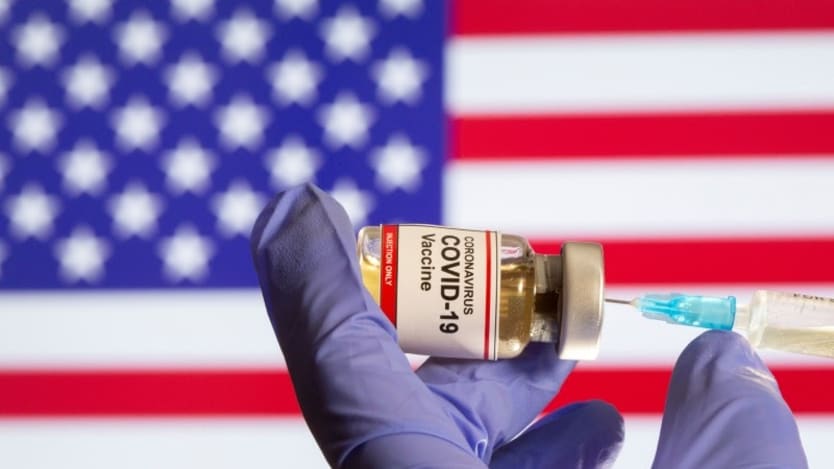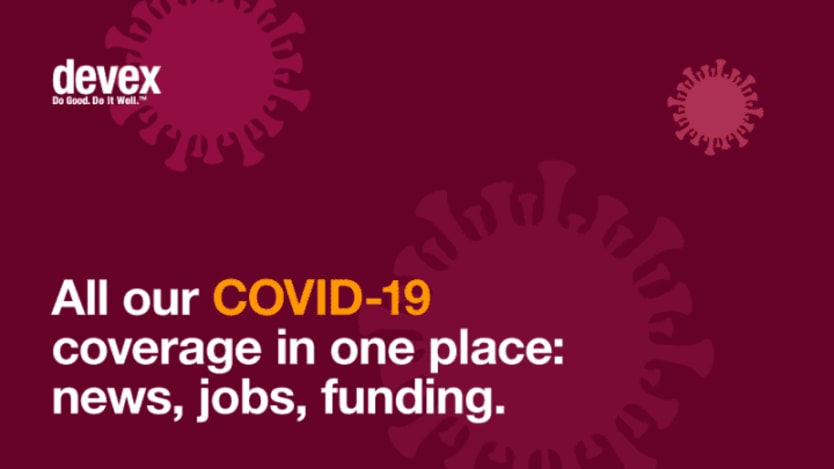
U.S. presidential candidate Joe Biden has already announced his plan to rejoin the World Health Organization if elected, but there is another strategic decision on which the candidate has remained mum — U.S. participation in COVAX, the international effort to pool funding for advance purchase of an eventual COVID-19 vaccine. Here, the Biden and Kamala Harris plan is a single sentence: “Accelerate the development of treatment and vaccines.”
Part of our series
COVID-19 and the Polls
As the pandemic rages on, elections continue across the world. In this series, we explore how COVID-19 has affected people’s choices at the ballot, how health features on political agendas, and the wider repercussions of voter choices during the pandemic.
The COVAX idea is straightforward — prepurchase possible COVID-19 vaccines to assure minimum levels of supply while creating enough organized global demand to negotiate reasonable prices.
COVAX has two parts.
The first part is an advance purchase commitment to vaccine manufacturers on behalf of lower-income countries — termed “COVAX AMC” — supported by Gavi, the Vaccine Alliance. AMC is relatively small — both financially, at $2 billion of seed funding, and in terms of number of doses — and has already received $1.8 billion in contributions from Gavi’s usual donors, minus the U.S., and philanthropists. Without this external support, it is unlikely that lower-income countries would access a vaccine soon.
But to add to the purchasing firepower and to address the concerns of middle-income or small countries that might have difficulty competing on the market for a new vaccine, the second part of the initiative — the “COVAX facility” — was established to enable self-financing middle- and higher-income countries to place a down payment and reserve a number of doses equivalent to 10%-50% of their population. The self-financing commitment has been signed by 84 countries as of the end of October and has also begun to attract higher-income countries including China, the 27 EU countries, the U.K., and Australia.
However, the number of doses selected and the status of down payments by country are not in the public domain, so it is not possible to assess the current market power of the facility at this stage, nor its progress toward a volume or financial goal.
Operation Warp Speed has placed advance purchase contracts with a preselected portfolio of vaccine developers and manufacturers, but notably omits Chinese vaccine candidates despite early promising results.
—Going it alone
Despite these unknowns, the structure is in place for COVAX to procure vaccines in the many billions from a large, diversified portfolio of preselected vaccine candidates considered promising by WHO. And up to now, the U.S. has taken a similar approach in Operation Warp Speed, or OWS — but only to address domestic vaccine needs.
OWS has placed advance purchase contracts with a preselected portfolio of vaccine developers and manufacturers, but notably omits Chinese vaccine candidates despite early promising results. OWS has no current plans to purchase vaccines for other countries in the world.
With the U.S. sitting out COVAX and going it alone with OWS, the country’s existing global health investments, self-interest, and leadership credibility are all at stake. Previous administrations have invested in some of the most cost-effective global health programs, including decades of support to Gavi and in its efforts to bring new and underused vaccines to the most disadvantaged people in the world. Protecting health workers and the most vulnerable populations in low-income countries from further spread of COVID-19 must obviously be at the center of U.S. global health and development policy for the next four years to restart lives and economies.
Further, the U.S. could benefit from participation in COVAX in its own self-interest. Committing to purchase doses for 10% of its population from COVAX Facility’s differently diversified portfolio of vaccines may enable access to the most efficacious vaccine, shortening the time to full vaccination.
What US participation could mean
There are also opportunities to strengthen COVAX if the U.S. joins in; few expect that the first licensed vaccines will be universally effective in fully controlling COVID-19 or preventing future outbreaks.
COVAX’s current advance purchase approach means that it must buy whatever is produced even if the first-generation vaccines do not work as hoped, bearing all the financial risk of a failed vaccine candidate. In the advance purchase model, incentives for private capital participation and efficiency are weak. The same issue applies in OWS — if the effort does not deliver a winning vaccine, the U.S. may not be able afford to go it alone again for second and third generation vaccines.
Instead, U.S. participation can help to move COVAX, and OWS, beyond this first emergency stage of pre-purchasing vaccine doses to a more competitive model that establishes a pre-market for the most efficacious vaccines, avoiding tying up public monies in vaccines and manufacturing arrangements that don’t work. This would take shape as an advance market commitment rather than an advance purchase commitment — where COVAX, and OWS, could pay only for success.
If elected president, Biden should move to join and allocate funding to both the COVAX AMC and the COVAX Facility as a matter of priority for U.S. national security and U.S. global health leadership.







